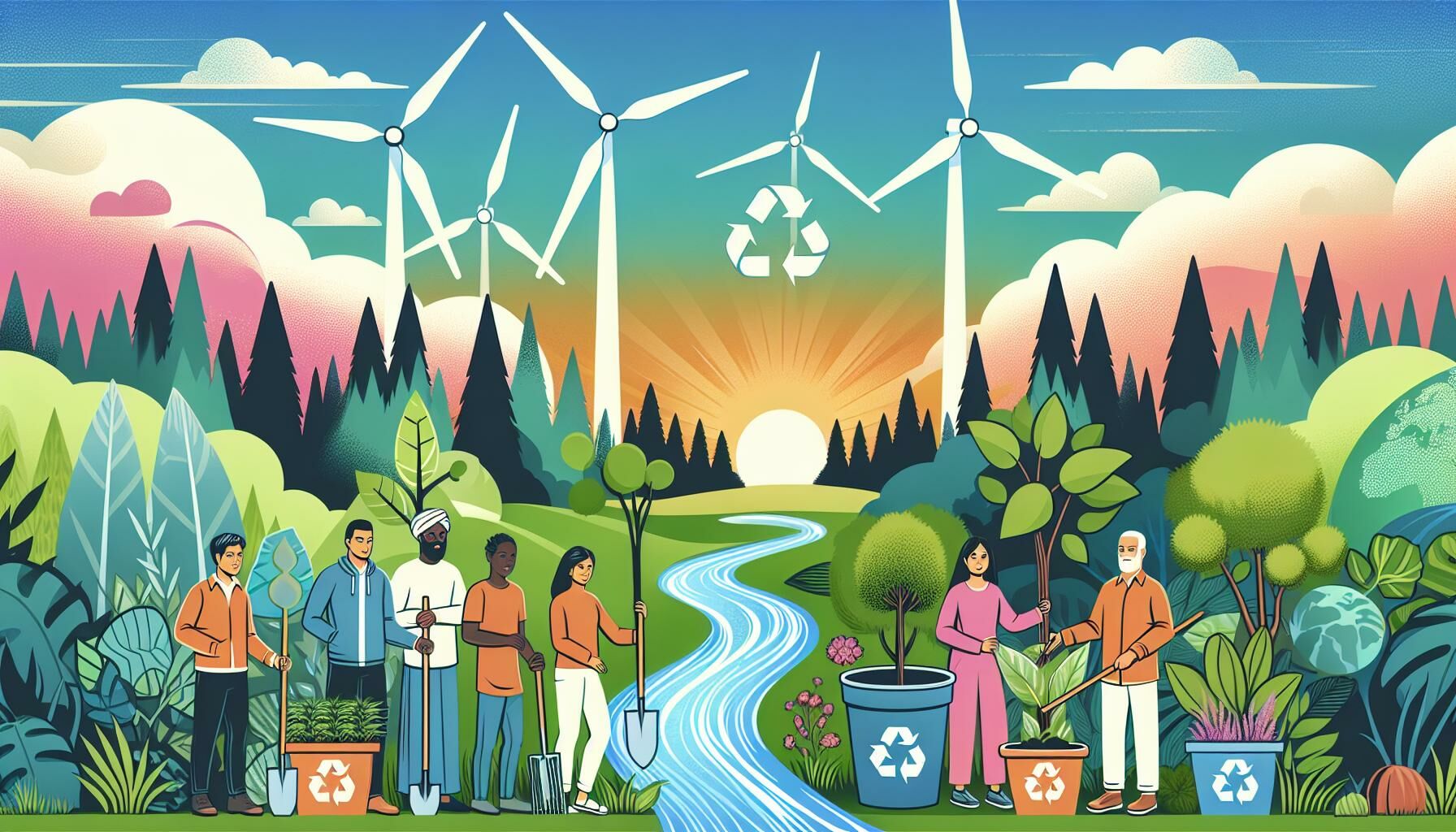Sustainable travel tips for eco-conscious visitors

In the fast-paced modern world, sustainable travel is becoming a pivotal concern for those dedicated to environmental preservation. Yale Travel Management experts have curated a comprehensive list of eco-friendly travel tips designed for business trips. Impressively, these recommendations are easy to adopt but play a crucial role in minimising our ecological impact while travelling. Adopting sustainable practices goes beyond just maintaining the visual beauty of destinations; it involves safeguarding their future accessibility and enjoyment for coming generations.
What is sustainable tourism?
Sustainable tourism encompasses the practice of travelling in a way that aligns with environmental conservation, supports local communities, and enhances the experience for tourists. This concept extends beyond simply minimising one’s environmental impact through actions like recycling during travel. It advocates for a holistic approach that aims to minimise negative effects on destinations to preserve them for future visitors.
Instead of participating in traditional tourist activities, sustainable tourism encourages choices that respect the destination. For example, choosing local guesthouses over international hotel chains helps reduce overcrowding and directly benefits the local economy. The principle behind sustainable tourism mirrors a “leave no trace” mindset: it’s about taking photos, and forming memories, but leaving only support and goodwill for the residents.

Sustainable travel tips
Support green accommodations for sustainable travel tips
Choose accommodations like hotels and hostels that emphasise environmental sustainability. These establishments are dedicated to conserving energy, preserving water, and supporting recycling initiatives. Adopting this strategy is beneficial for the planet and frequently offers guests a genuine local experience.
Educate yourself and share knowledge.
Understanding the full scope of your travel’s impact on the environment, economy, and local communities at every destination is crucial. This knowledge empowers you to interact with individuals in a way that is both commendable and respectful. Additionally, sharing eco-friendly travel tips, especially for notable destinations like Thailand, can inspire others to embrace more sustainable practices for our planet.
Conserve water and energy
Firstly, turning off lights, televisions, and other electronics when not in use constitutes a fundamental step towards reducing energy consumption. Adjusting air conditioning settings or turning it off before leaving the hotel room further contributes to energy conservation. Such practices, although minor, collectively have a significant effect on reducing the energy demand in tourist areas.
Secondly, opting for showers instead of baths and keeping them brief not only conserves water but also minimises energy used for heating. For an even greater impact, guests can handwash clothes instead of opting for hotel laundry services, which often involve high water and energy usage. Placing a ‘Do Not Disturb’ sign on the hotel door ensures towels and linens aren’t unnecessarily laundered daily, saving on both water and energy.
Offset your carbon footprint
Offsetting your carbon footprint emerges as a pivotal step towards embarking on a journey of sustainable travel. It serves as a balancing act, neutralising the emissions generated from your trip by investing in projects that cut down on carbon and other greenhouse gases elsewhere. Initiating this process involves a straightforward approach: calculate your footprint using an online carbon calculator, then purchase offsets equivalent to the CO2 you’ve produced. The funds from these purchases go towards ventures such as protecting rainforests, building wind farms, or converting cow manure into energy. Beyond emissions reduction, these projects often foster additional benefits, such as creating local jobs, improving sanitation, and conserving endangered species. The video about how to calculate your carbon footprint below is from wikiHow, a YouTube channel.
Buying directly
Purchasing from local markets and artisan shops offers a double advantage. It supports local artisans and ensures tourists take home unique souvenirs not found elsewhere. This means avoiding mass-produced items that often travel thousands of miles, contradicting the principles of sustainable travel.
Eating locally
Small, locally-owned restaurants provide authentic dining experiences and financial benefits to the community. It’s easy to find these gems with a bit of online research or by asking locals for recommendations. This way, tourists can enjoy unique flavours while supporting the local economy.

Souvenirs with a purpose
Opting for souvenirs from local artisans not only supports the local economy but also reduces the carbon footprint associated with transporting goods globally. Tourists should look for pieces that tell a story, adding value to both the item and the purchase.
Learn local customs
To demonstrate genuine respect towards the inhabitants of your destination, it is advisable to acquaint yourself with their local customs prior to embarking on your journey. Learning several phrases in the native language or understanding appropriate attire can significantly enhance mutual respect. Should you find yourself uncertain about appropriate behaviours, observing the practices of locals can provide valuable insights, as they possess a comprehensive understanding of their cultural norms.
Support local enterprises
Opting for local enterprises instead of large multinational corporations benefits the entire community. Consider patronising a family-owned diner, staying at a quaint local inn, and purchasing distinctive items from artisan markets. Such actions reinvest funds directly into the local economy, ensuring the survival and prosperity of these establishments and enhancing the vibrancy of our community.
Engage with respect
Interacting and spending time with local inhabitants can be highly rewarding, yet it is imperative to approach such interactions respectfully. It is essential to always seek permission prior to photographing individuals or their possessions. Respecting privacy and ensuring personal space are fundamental principles for fostering positive relationships with all those you encounter during your travels.
Preserve cultural heritage
Cultural sites and traditions are vital components of a community’s identity. Travellers can play a part in their preservation by following guidelines at historical sites, avoiding prohibited areas, and not removing artefacts. Participating in cultural activities or workshops can also offer insight into the community’s heritage while contributing to its conservation.

Avoid explorative activities
Awareness of ethical considerations related to entertainment and tourism activities is paramount. Choosing excursions and attractions that respect animal welfare and avoid exploiting cultural practices is essential. For instance, opting for ethical wildlife tours over venues known for the mistreatment of animals honours community values and animal rights.
Avoid single-use plastics

Reducing single-use plastic consumption stands at the forefront of sustainable travel tips. It’s not just about refusing a straw at a café; it’s a holistic approach to minimising plastic waste during travel. A reusable water bottle, preferably one with built-in filters like the Lifestraw or SteriPen, makes a significant difference. These gadgets allow travellers to drink safely from any source, drastically cutting down on the need for bottled water. Investing in a tote bag or stuff sack serves multiple purposes.
Through these actions, travellers contribute to a sustainable cycle that benefits both the visitor and the host community. They leave behind a positive footprint, nurturing the places they visit for future generations. This approach to travel, focused on local spending, aligns with broader sustainable travel tips and reaffirms the traveller’s commitment to conserving global treasures.
If you are an individual who is also conscious about green practices or still looking for sustainable travel trips, you might also love our article on ‘Easy tips for sustainable life.‘
Latest Thailand News
Follow The Thaiger on Google News:


























